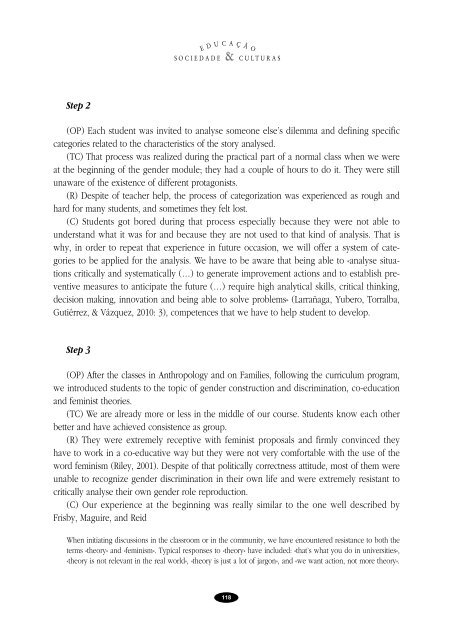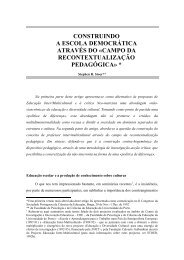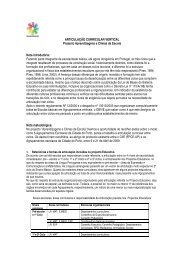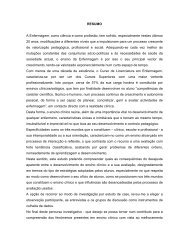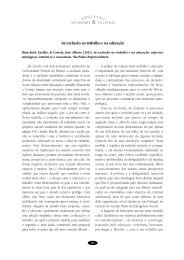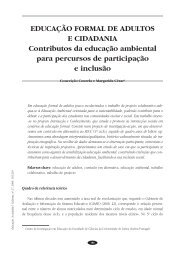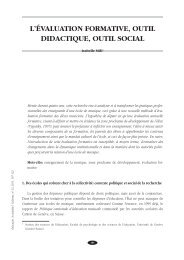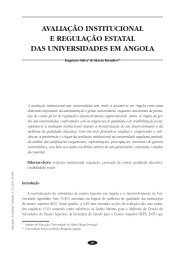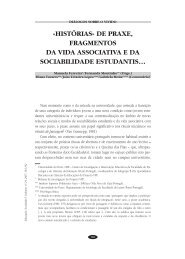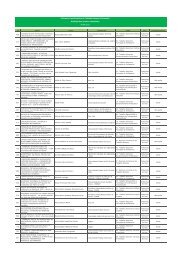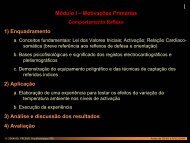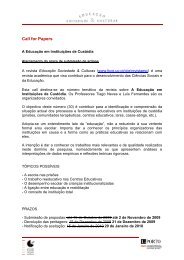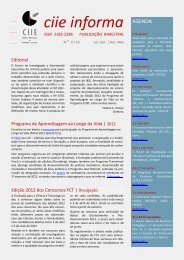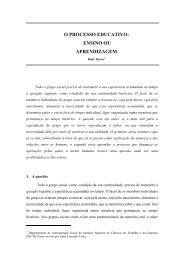REFLECTINGON AN ACADEMIC PRACTICE TOBOOST GENDER ...
REFLECTINGON AN ACADEMIC PRACTICE TOBOOST GENDER ...
REFLECTINGON AN ACADEMIC PRACTICE TOBOOST GENDER ...
Create successful ePaper yourself
Turn your PDF publications into a flip-book with our unique Google optimized e-Paper software.
Step 2(OP) Each student was invited to analyse someone else’s dilemma and defining specificcategories related to the characteristics of the story analysed.(TC) That process was realized during the practical part of a normal class when we wereat the beginning of the gender module; they had a couple of hours to do it. They were stillunaware of the existence of different protagonists.(R) Despite of teacher help, the process of categorization was experienced as rough andhard for many students, and sometimes they felt lost.(C) Students got bored during that process especially because they were not able tounderstand what it was for and because they are not used to that kind of analysis. That iswhy, in order to repeat that experience in future occasion, we will offer a system of categoriesto be applied for the analysis. We have to be aware that being able to «analyse situationscritically and systematically (…) to generate improvement actions and to establish preventivemeasures to anticipate the future (…) require high analytical skills, critical thinking,decision making, innovation and being able to solve problems» (Larrañaga, Yubero, Torralba,Gutiérrez, & Vázquez, 2010: 3), competences that we have to help student to develop.Step 3(OP) After the classes in Anthropology and on Families, following the curriculum program,we introduced students to the topic of gender construction and discrimination, co-educationand feminist theories.(TC) We are already more or less in the middle of our course. Students know each otherbetter and have achieved consistence as group.(R) They were extremely receptive with feminist proposals and firmly convinced theyhave to work in a co-educative way but they were not very comfortable with the use of theword feminism (Riley, 2001). Despite of that politically correctness attitude, most of them wereunable to recognize gender discrimination in their own life and were extremely resistant tocritically analyse their own gender role reproduction.(C) Our experience at the beginning was really similar to the one well described byFrisby, Maguire, and ReidWhen initiating discussions in the classroom or in the community, we have encountered resistance to both theterms «theory» and «feminism». Typical responses to «theory» have included: «that’s what you do in universities»,«theory is not relevant in the real world», «theory is just a lot of jargon», and «we want action, not more theory».118


